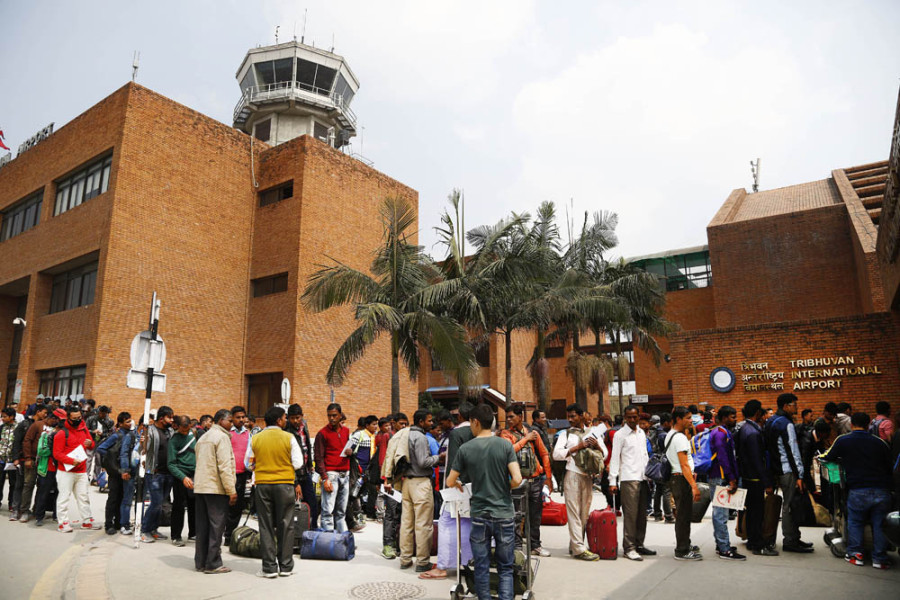Editorial
In defense of Nepali migrant workers
Nepalis are forced to work abroad and the government should do everything to ease their burden.
Nepal is the 19th largest receiver of remittance in the world, with Nepalis sending $8.1 billion back home in 2018. When compared to the country’s GDP, remittance is as large as a third of the total, larger than the contribution from industries. This means that, in lieu of the government being able to promote employment opportunities domestically, remittance is a major contributor to the national income—and will remain one for the foreseeable future. So, when government agencies work towards easing the burden that migrant workers face, it should always be viewed as a positive development.
Read: He was one of the few ministers who delivered. Then the prime minister sacked him.
When people cannot find jobs near home, it is inevitable that they have to move in search of work. This is the only way many of the poor can support themselves and their families. For years now, such out-migrants have been facing severe challenges—barriers to enter foreign employment that would put them in the negative even before beginning the job that was supposed to change their lives. Some of the notable barriers were exploitative fees collected by manpower agencies, air ticket prices and the visa fees collected by host countries along with the health checks conducted with the consent of the host embassies. Then when the poor out-migrants reach their destination, many would be surprised to find exploitative and abusive work environments. Many have faced the undue stress of being paid wages much lower than agreed upon. To top it all off, barriers to exit host countries and the lack of concrete support from the Nepal government let such practices go unchecked for years.
All of these barriers have severely affected the income and health of out-migrants. What’s worse, the government, instead of securing bilateral agreements to ensure the safety of its citizens, even attempted to bar people from going abroad for work. The ban on Nepali women taking up jobs as housemaids in the Gulf countries is one such measure that has not really worked; women continue to flout the ban on their own volition, risking abuse, since they need the employment. It seems the government has finally begun to understand that lessening the possibility of exploitation, by making labour permits more accessible and punishing fraudsters, will work better at easing the life of the out-migrant over attempting to bar them from their livelihood.
Two new developments initiated by the Department of Foreign Employment have made the lives of out-migrants easier, and should be commended. The decentralisation of labour offices and intensive use of information technology there have increased people’s access. Increasing the number of offices, and the services each one can deliver, means that hopeful first-time migrant workers and returnees need not make expensive and time-consuming trips to Kathmandu. The use of printable labour permits similarly reduces the chance of forgery and fraud. The other development is even more important: It seems that the department has started to prosecute and fine recruiting agencies and sub-agents at unprecedented levels. Not only does this mean that the workers who were cheated will receive compensation, and at a faster pace than before, but it will also act as a deterrent for those who think that they can cheat Nepalis with impunity.
But while these are important steps in the right direction, much remains to be done. The government has been unable to enforce its Free Visa Free Ticket scheme, for one. For another, while the Labour Ministry under Gokarna Bista was able to pressure countries like Malaysia to ease the financial burden of visas and health check-ups, the agreements are yet to be implemented. The sacking of the minister, who is widely regarded as being an effective leader, further puts into question whether the positive developments will stick. But the government must ensure that they do.
***
What do you think?
Dear reader, we’d like to hear from you. We regularly publish letters to the editor on contemporary issues or direct responses to something the Post has recently published. Please send your letters to [email protected] with "Letter to the Editor" in the subject line. Please include your name, location, and a contact address so one of our editors can reach out to you.




 19.28°C Kathmandu
19.28°C Kathmandu














